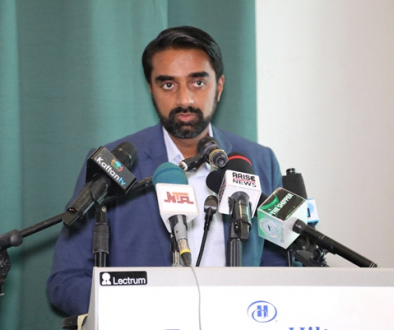Inclusive Business: An Innovative Policy Choice for Stimulating Job Creation
Policy making in Nigeria is typically dominated by the political imperatives of “palliatives” and “quick fixes”. Without palliatives the people rapidly lose interest, lose hope and turn against their political heroes. Without quick fixes, the opposition finds it easy to attack the performance of a new government and shake the faith of the electorate leading to the same result – the people turning against their heroes. So what should governments do when interested in stimulating job creation to pull masses of their citizens out of poverty? On March 28, 2015, the people of Nigeria chose “change” and one of the key gains they now have is the right to demand fulfillment of the APC campaign promise to create 5 million new jobs by 2019. According to the APC, “as at 1999, Nigeria’s rate of unemployment stood at about 8%, today it is estimated from official statistics to be close to 30%”.
For many developing country governments, their job creation policies generate the right sound bites, and tend to focus on quick fixes that transfer some form of subsidies/benefits to different economic actors like SURE-P, whilst demanding certain levels of compliance with rules but the implementation more often than not fails to meet the mark, betraying an absence of innovative thinking in the policy formulation process. For one, the key motivations of employers, profit, is seldom adequately considered by policy makers and is often dealt with as a given. Businesses (prospective employers) are primarily motivated by things that would clearly facilitate the sustainable growth of their enterprises through improved access to finance, markets, know-how and technologies.
Inclusive business models integrates the less well off (which could include the unemployed) as consumers, employees, producers/suppliers etc., in ways that ensure an alignment of incentives between the company and such persons – in other words, for commercial success to accrue for the company, the social impacts of jobs, wealth and value accrues for the less well off. Scale of the jobs created through inclusive business models, in terms of numbers, would depend on the size of the “ecosystem” around each participating business and/or the sheer numbers of businesses taking advantage of such a policy.
Governments can incentivize the massive adoption of inclusive business models at scale through innovative use of regulation and budgets. Regulation should be used to set the standards for what is an inclusive business model and a sustainable job. It should be used to establish auditable, transparent reporting standards to ensure the right policy outcomes are being incentivized. Both the revenue and expenditure sides of the budget can be used to incentivize business. On the revenue side, in exchange for certain kinds of tax breaks, companies can be encouraged to invest in certain ways within their value and supply chains and within their host communities or communities impacted by their mission. On the expenditure side, certain types of public procurement can be open to companies whose business models are certified to be inclusive and the same can be done for access to government subsidies in the form of challenge or development funds, credit guarantees, and so on.
Such an approach to policy making would require business development services to support businesses in developing genuine, sustainable inclusive business models. It would also require compliance certification services to be readily available so regulators don’t get overwhelmed.
They APC government has promised 5 million jobs by 2019. They have also promised palliatives in the form of a Social Welfare Program of at least Five Thousand Naira per month (N5000) that will cater for the 25 million poorest and most vulnerable citizens upon the demonstration of children’s enrolment in school and evidence of immunisation to help promote family stability. They also plan to provide allowances for Twelve (12) months to youth who complete their National Service and are unable to find jobs provided they are in skills and entrepreneurial development schemes. They offer a Loan Guarantee Scheme to SMEs and they would be putting up N300bn in a Regional Growth Fund to get development less reliant on the public sector and more private-sector driven. They would like to make Information Technology, Manufacturing, Agriculture and Entertainment the key drivers of Nigeria’s economy.
Sustainable, policy-driven, business growth and compliance predicated on inclusive business models could provide the framework to tie the components the APC has identified into a coherent, sustainable whole. They should incentivize adoption of inclusive business models to stimulate job creation in Nigeria.



